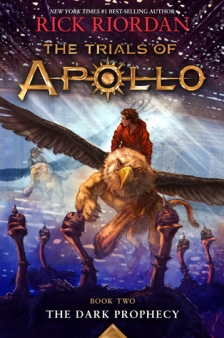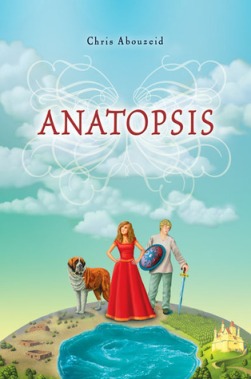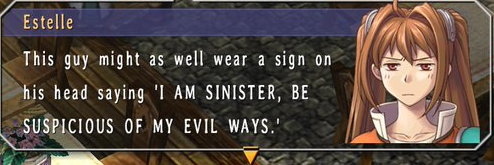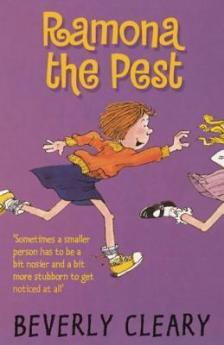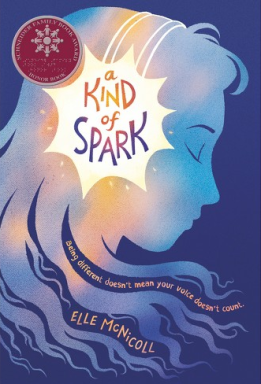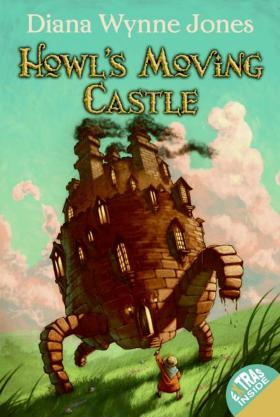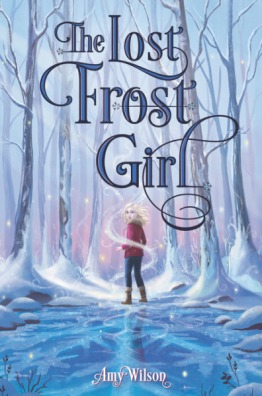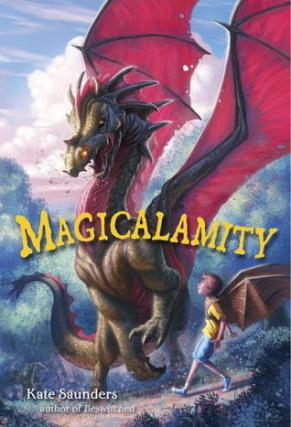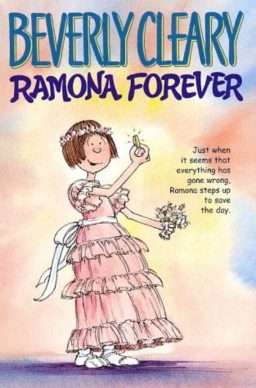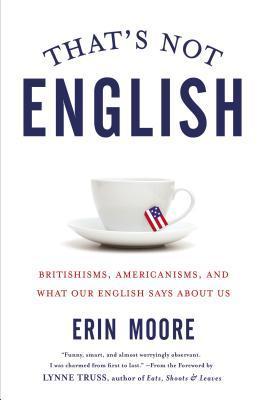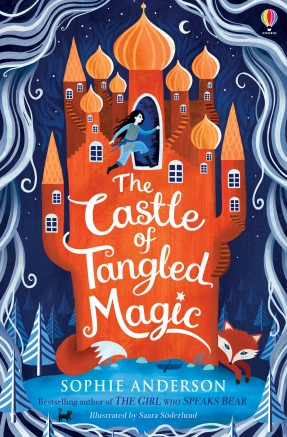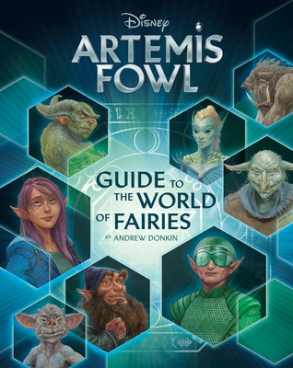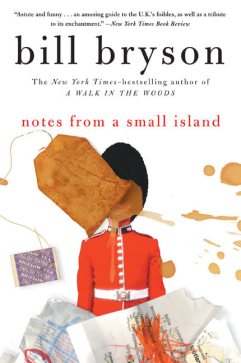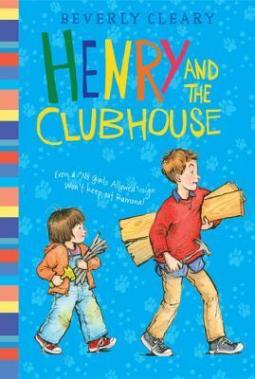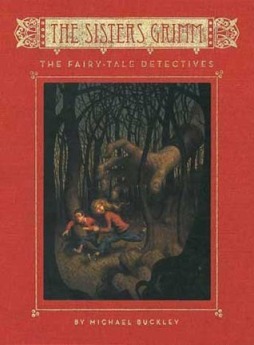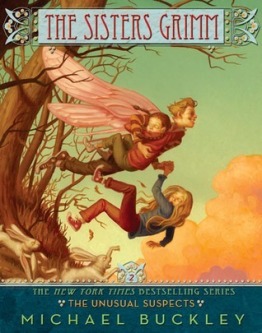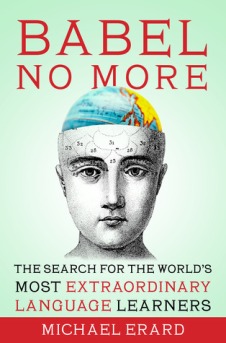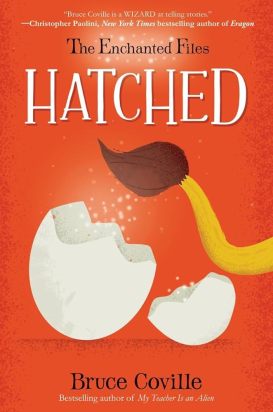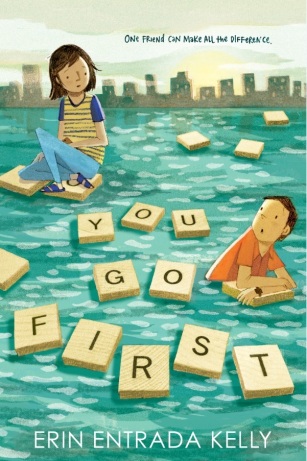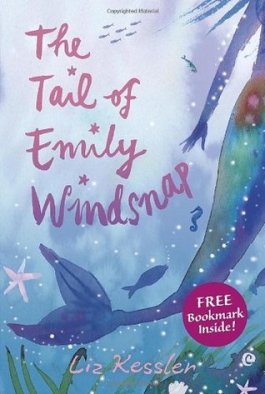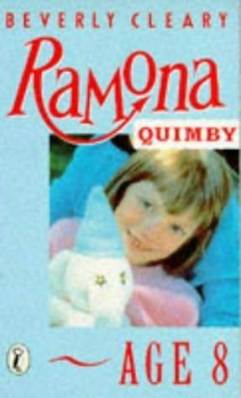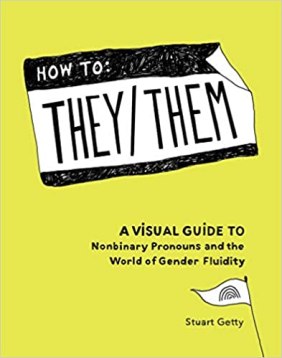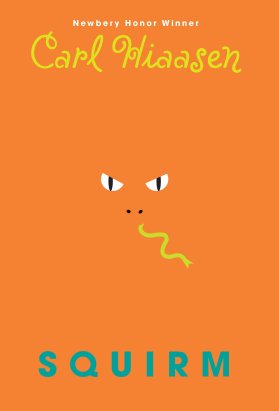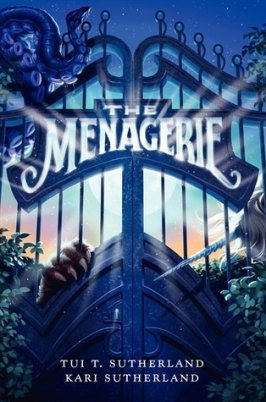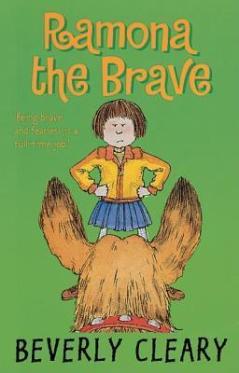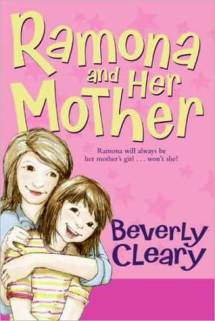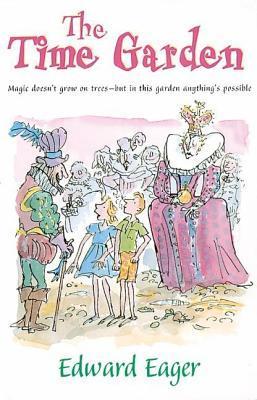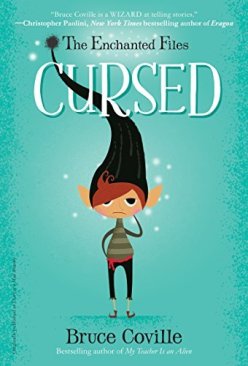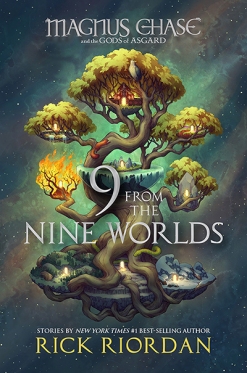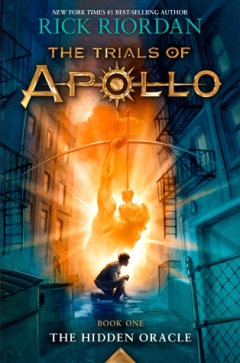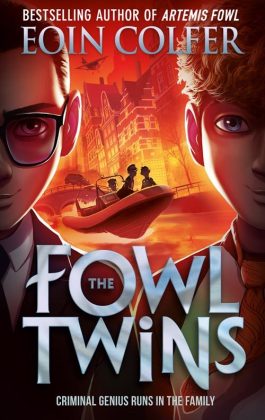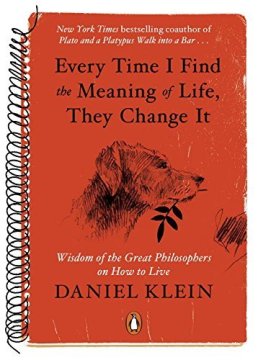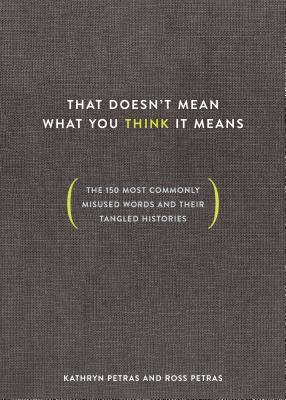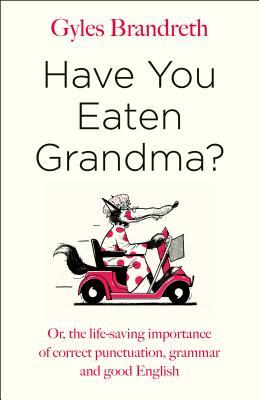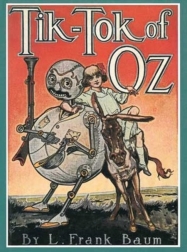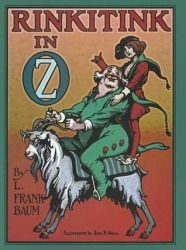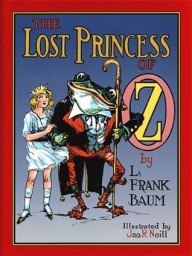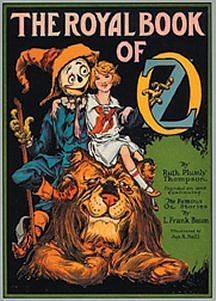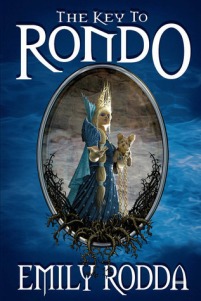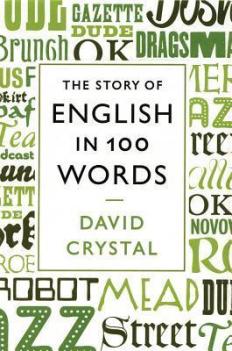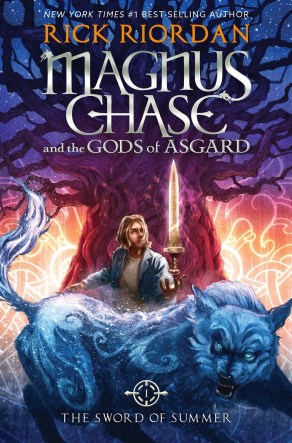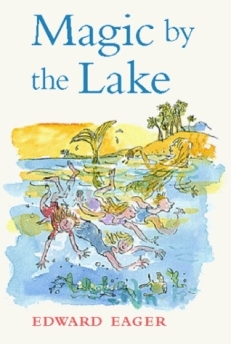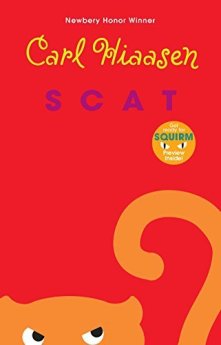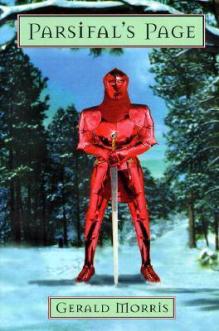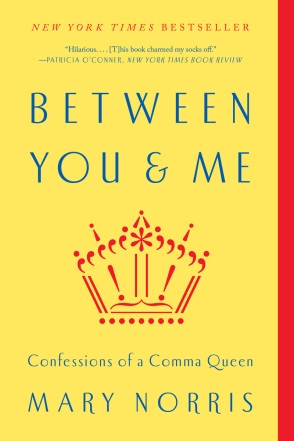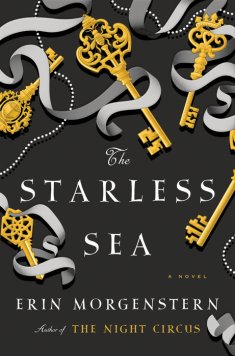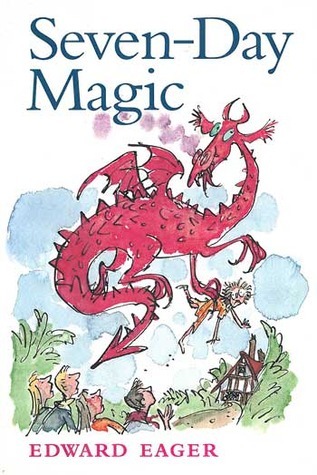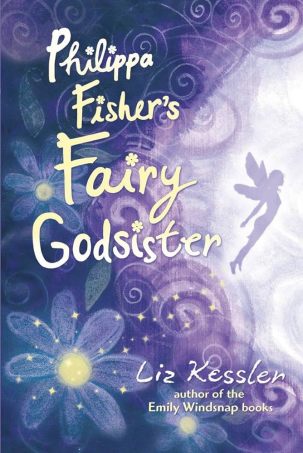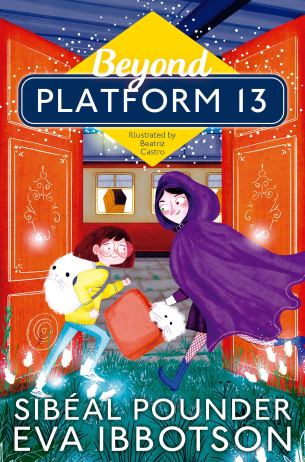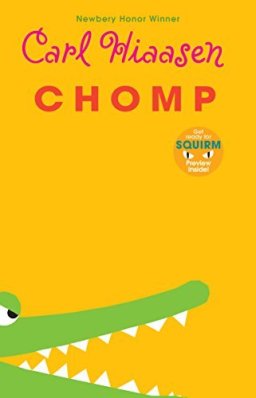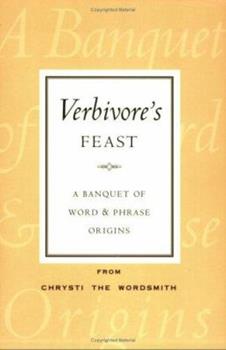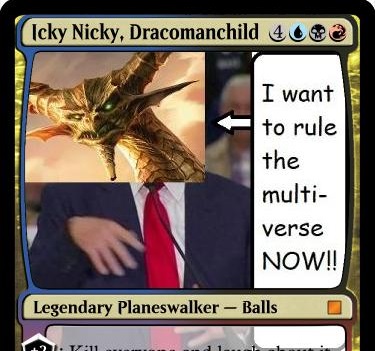Well, I’m a whole year late on this one, but at least it’s still June this time. I have another batch of interviews ready for queer pride month. This is the third time that I’ve done such a thing; the first two were back in 2018 and 2020. This one was supposed to be for 2022, but I kept waiting for some people to get back to me who never did, and also life happened. But better late than never, right?
1.
TheMartianGeek: How would you like me to refer to you in the article?
Danielle: You can use my real name, and she or they, please.
TMG: Okay. That was going to be part of my next question. What is your full identity in respect to gender and sexual/romantic orientation? (Also, should I use both she and they or pick one?)
D: I have no pronoun-related preference. I identify as queer and gender-fluid broadly. And as pansexual, gray ace, and non-binary more specifically right now, though those terms have been fluid for me historically.
TMG: I see. When and how did you discover your identity? And how old are you now?
D: I’m 37 now. I’ve identified as polyamorous/ethically non-monogamous since middle school or high school, definitely before I knew the words for what I was feeling. I think I’ve felt genderfluid and pansexual since then too, but it took maybe a decade or more to really identify with those words and understand how they corresponded to my experience. I think it took me longer to identify as gray ace, in part because that terminology was really not in use when I was growing up, but also because my identities and sexuality has shifted, sometimes radically, throughout the past 20 years.
TMG: All right. How has being queer affected your life, including relationships with your community?
D: I feel like that’s a really broad question…
TMG: It is pretty broad. Family, romantic partners, regular events (including church if you go), general public…
D: Well, I did my undergrad degree in Philadelphia, which is a pretty great city to be queer in. Not that there isn’t still stigma and violence, but there are a lot of queer individuals, businesses, non-profits, and support systems in place. But when I moved from Philadelphia to Colorado, I did have trouble “finding” queer people, and that’s still an issue now. Everyone is more dispersed, and if you’re not in a city, it can be hard to find your people. So dating’s harder (and fairly, complicated by being autistic and poly as well). My co-parent is a man, so I also struggle with people assuming I’m straight, the same way they assume I’m a woman, which can be frustrating and invalidating too. Is this helpful?
TMG: Yes, thank you. How has being queer, including your journey through finding out your identity, affected your mental state?
D: I don’t remember. I feel like I’ve always been queer.
(At this point, the questions ended up being too hard for the person to answer due to executive dysfunction, so I didn’t push it.)
2.
TMG: Do you only use he/him pronouns, or he/they, or what?
Niko: I am okay with all pronouns, but i’m used to he/his, and thats what most people use.
TMG: What is your full identity in respect to gender and sexual/romantic orientation? Or however much you’re comfortable sharing.
N: Agender/neutrois, asexual, and aromantic.
TMG: A triple threat, I see.
N: I’m also autistic. I like As 😉
TMG: When and how did you discover your identity? And how old are you now?
N: I always had a feeling that my body was wrong but, in puberty the dysphoria became a problem. During that time (around 13/14), I started to discover that I was trans, but I also never felt female. Later at, like, 18, I discovered that there is something like nonbinary identities.
TMG: And you’re in your 20s now, right?
N: I am 33 now.
TMG: Oh. Well, how would you say that being queer has affected your life, including relationships with your community?
N: Well, being asexual and aromantic had the effect that I never had a regular relationship, and some people found it strange. But I wasn’t bullied because of that. I still look mostly male from the outside, so there is not a lot I do to show me being agender. I just dislike being pushed into male stereotypes.
TMG: I completely understand that. Some people would question why you (and other people) can’t just be a man who doesn’t follow the stereotypes. What would you say to that?
N: I would like a society where stereotypes didnt exist. And thats how I live, as most people still refer to me as male. But there was also my issue with body dysphoria that can’t be shut off by not having to deal with stereotypes.
TMG: That makes sense. Like, you didn’t like some of the physical aspects that come with being AMAB because they felt weird and uncomfortable?
N: Yes. I had strong dysphoria toward my male parts.
TMG: Gosh. Are you sure you’re not me from an alternate universe?
N: Maybe. What’s the ID of your universe?
TMG: I don’t know. I’ve never found out.
N: Darn. But who knows. Haha.
TMG: Relatedly, are there any details about gender nullification surgery that you’re comfortable sharing? Such as what you need to get it and what has to be done afterward.
N: I don’t know where to start exactly. Don’t hold back with questions. I will tell if I dont want to answer a specific question.
TMG: Well, I’m not entirely sure where to start…
N: I’d think that the process is significantly different in Germany compared to the US, at least because our healthcare systems are so different. So I started with going to a therapist and talked about all that and options over a longer time. The first treatment I got was testosterone blockers for 3 years.
TMG: So you can just block one hormone without having to replace it with another one? I’d heard that one couldn’t simply have neither because it would cause problems for your body.
N: It’s usually not the best not to have any hormone. But for me, it actually worked really well with almost no side effects. I have to do yearly checkups, but so far everything is okay.
TMG: Nice.
N: But the hormone blockers were just the start. I wanted surgery.
TMG: So the yearly checkups are the only thing that you have to do now that you’ve had the surgery?
N: I had to do it since the blockers. After 3 years of blockers, I had the surgeries (first orchiectomy, later nullification) and still have to do the checkups.
TMG: Did/do you also grow less facial and body hair than before?
N: Facial hair didn’t change, but body hair got less.
TMG: Did anything else change? Voice, muscle tone…?
N: The voice didn’t really change. It’s more difficult to keep in shape.
TMG: Huh. So what, body fat increased?
N: Yes.
TMG: That’s unfortunate. Do you have more of an exercise routine than before, or a different diet or anything?
N: Yes. And I am still working on it and on a good way.
TMG: Fair enough. What would you tell a young queer person? Or specifically agender, aromantic, or asexual. And what would you tell a person who doesn’t feel like they fit into the community, like they’re “not queer enough” or too good at passing?
N: There is nothing like “not queer enough”. It’s not a contest who is more queer. It’s about you and how you feel.
TMG: Do you have any tips for people who are thinking of trying out different presentations or undergoing some sort of transition?
N: Go step by step and see what you are comfortable with.
TMG: What do you think about the depiction of queer people and identities in popular media?
N: It’s getting more normalised, and I think that’s good.
TMG: Agreed. Though it would be nice to see more of the lesser-known ones.
N: Yes. Maybe there will be. Especially people like me.
TMG: What do you think about queer fashion and style? Do you have any particular preferences in regards to this?
N: I wear very neutral and unobtrusive things. Usually just something in black or grey. I don’t like to stand out. The only thing where I stand out is my swimwear.
TMG: I see. Do you have an interest in other people’s fashion?
N: Not really.
TMG: Fair enough.
TMG: Do you think that there is any correlation between neurodivergence and being queer?
N: Yes. I think there is. I am also autistic, and it seems there is an unusual number of autistic people in the queer community. But I don’t know if this is something neurological or if autistic people have fewer problems with accepting traits that are more outside of the norms in the population.
TMG: Or we see less of a point in things like gender, maybe.
N: Yeah. Thats basically what I mean. Neurotypical people usually tend to stick to norms and don’t question these.
TMG: Sure. How do you feel about the interaction between queerness and religion?
N: I am not religious. I feel that a lot of strict religious groups have a very problematic attitude toward queerness. I think they should question why their god would even create queer people if he doesn’t want queer people. I also think that these people sometimes use religion to suppress their own queer tendencies.
TMG: What does pride month mean to you?
N: Not much for me personally. I think we should show some presence all the time anyway. The month didn’t really change a lot for me.
TMG: Well, we’re just about finished here. Do you have anything to say that I didn’t cover?
N: Well, there’s nothing that comes into my mind. If you don’t want to know anything else, that’s okay with me.
TMG: Okay. Well, thank you for answering.
3.
TMG: What is your full identity in respect to gender and sexual/romantic orientation? What pronouns do you use?
Luma: I’m asexual, on the aromantic spectrum, bigender female/non-binary, and my pronouns are she/her, fe/fer, and fey/fem. The latter two I made up by taking she/her and they/them pronouns, and then switching out the sh, h’s, and th’s to f’s.
TMG: I see. When and how did you discover your identity? And how old are you now?
L: I’m 21 now, the whole process started like 2 and a half years ago. It wasn’t just one moment of sudden realization, but a series of trying new labels, and eventually finding ones that fit.
TMG: Fair enough. How has being queer affected your life, including relationships with your community?
L: So, growing up, I always felt like I was different from the people around me, and while being queer wasn’t the only thing that contributed to that, since I’m autistic, it sure hadn’t helped. Not being interested in sex at all, and romance being this thing that kinda sounded nice, but certainly wasn’t a priority to me or something I cared about all that much, while other people around made those things so important, it really made me feel alone. But then I eventually found the words for my feelings and other people who had similar feelings to me, and that has made me so happy!
TMG: Cool. So it sounds like it definitely had a positive effect on your mental state as well.
L: Yeah, it definitely did.
TMG: What would you tell a young queer person? Or someone specifically on the nonbinary, asexual, or aromantic spectrum. And what would you tell a person who doesn’t feel like they fit into the community, like they’re “not queer enough” or too good at passing?
L: What makes you asexual, or aromantic, or nonbinary, or another queer identity is that that label makes you happy. No matter what anyone else says, if that label fits right to you, then it’s right. And if a label doesn’t feel right (or right anymore), you can get rid of it. Trying new labels is always an option, these aren’t set in stone. And there’s no such thing as being “not queer enough.” If you don’t neatly fit into the box society has placed you into sexuality or/and gender wise, then you’re queer. And despite the gatekeepers, i promise you there are queer people out there who will love and support you.
TMG: Well said. On that note, do you have any tips for people who are thinking of trying out different presentations or undergoing some sort of transition?
L: Make sure to be safe, and that the people around you when trying new things are people you trust.
TMG: Good advice for a lot of situations. What do you think about the depiction of queer people and identities in popular media?
L: I think it’s generally getting better, but we still have a long way to go. Like there are more and more characters that are queer in popular media, but as an ace, aro, enby person there are still examples where it kinda feels dehumanizing when the only characters in the work with my identities are robots or aliens or stuff like that. Don’t get me wrong, robots and aliens are cool, but you know, I’m not either of those, I’m a human being, and I’d rather not be equated to being “not a person.”
TMG: Yeah, I can understand that. Or when the only queer (often nonbinary) character is morally suspect.
L: Yeah.
TMG: What do you think about queer fashion and style? Do you have any particular preferences in regards to this?
L: I think it’s pretty cool! Breaking gender barriers about what people are “supposed” to wear ends up with a lot of interesting experimentations with clothing. For my own preferences in clothes, I tend to generally like clothes that are considered quite fem (like lolita fashion), but i don’t think that should stop anyone from wearing it. You don’t have to be female to want to be cute and pretty.
TMG: Honestly, yeah. For one thing, I feel like women’s fashion is way more interesting than men’s.
L: Yeah, I agree; modern men’s fashion is kinda boring.
TMG: Also, lolita outfits are very cute, albeit probably pretty impractical.
L: They’re so pretty! I fell in love the moment I saw them. (And it’s not that impractical if you do a toned-down coord, but yeah, over-the-top coords are pretty impractical.)
TMG: Anyway, do you think that there is any correlation between neurodivergence and being queer?
L: I’ve heard there is, but I haven’t really looked at any data about it, so I’m not sure.
TMG: It does seem like an awful lot of people I know who are one of those are also the other.
L: Yeah, true.
TMG: How do you feel about the interaction between queerness and religion?
L: I’m religious, and I think quite a few religious people tend to forgot that “love everyone” includes queer people. Like, even if you think someone is doing something wrong, that’s no excuse to hate them. And being queer isn’t an action or a thing people do, it’s a thing people are, so why the judgement?
TMG: Yeah. I can somewhat understand why a person would have prejudice based on someone’s ideology, but it being related to something that they can’t change about themselves is pretty stupid. And doesn’t it seem like they don’t listen when people try to explain why it’s not wrong?
L: Yeah. I think a lot of people don’t like being wrong about something, so even if something they believe doesn’t make sense, they’ll just dig their heels in more.
TMG: Yeah. And that’s true for a lot of people on a lot of different sides.
L: True.
TMG: Do you have any further thoughts about people not accepting queer identities?
L: Also, it just really sucks when queer people don’t accept other queer identities. Like, they’re already queer, you would think they’d understand being discriminated against, but they still do it towards other queer people.
TMG: Seriously. I feel like ace people get that a lot. And enbies who don’t look androgynous.
L: True!
TMG: What’s something that you wish more people knew about being queer, or any other specific identity?
L: One thing I haven’t mentioned yet is the split attraction model. Once I found out about it, and specifically platonic and aesthetic attraction, my life made so much more sense!
TMG: Oh yeah. I feel like alterous attraction also doesn’t get much attention.
L: True! I think I’ve only really heard of it a couple times before now. (And I had to look it up again, because I didn’t immediately remember what the word meant.)
TMG: What does pride month mean to you?
L: For me, a big part of it is getting together with other queer people and talking about our experiences and other stuff. I haven’t gone to an in-person Pride (and I don’t know if I ever will; large groups of people can be pretty overstimulating), but I’ve enjoyed doing things with other queer people online during pride month.
TMG: Do you have anything to say that I didn’t cover?
L: Nah, I think I got all of it.
TMG: All right. Well, thank you for your time.
L: And thank you as well!
4.
TMG: What is your full identity in respect to gender and sexual/romantic orientation? What pronouns do you use?
Makayla: I use she/her pronouns. I identify as aromantic.
TMG: When and how did you discover your identity? And how old are you now?
M: Well I found JaidenAnimations’s video on being aro-ace and it really made a lot of sense to me. I related to a lot of the experiences she shared in that video, and I realized that “oh, maybe I’m aromantic too”. That was probably 4 or 5 months ago. I’m 15 now.
TMG: Cool. I should look into her stuff. How has being queer affected your life, including relationships with your community and your mental state?
M: Well, thankfully, my family and community are extremely supportive of the queer community. I’ve never felt unsafe because of who I am, even though I haven’t officially come out yet. I pay more attention to issues regarding queer people (same-sex marriage, trans rights, etc.) than I might have if I wasn’t queer. I don’t feel like it’s affected any of my relationships with friends or family. I can be myself without worrying about being criticized for it. That might be because a lot of my friends are also LGBTQ+ and they’re extremely supportive of everyone.
TMG: Nice. It’s good to have a support system. What would you tell a young queer or aromantic (or lesbian) person? And what would you tell a person who doesn’t feel like they fit into the community, like they’re “not queer enough” or too good at passing?
M: It’s okay to have crushes and it’s okay to not have crushes. You are the way you are and you wouldn’t be you if you were any other way. There’s not a hard line of “queer enough” to be a part of this community. I’ll support you no matter how you identify, and I know other people will too. It might take some time to find them, but they’re out there. You’re valid.
TMG: On that note, do you have any tips for people who are thinking of trying out different presentations or undergoing some sort of transition?
M: When I started going by a different name, I found it easiest to tell people my age first. I told my friends at school before I told my family. It was really helpful to see how the new name felt in everyday life and, once I was sure I was happy with it, I told my family. I told school friends first because I knew that if I didn’t like the new name, they wouldn’t have a problem with calling me by my birth name again. It was sort of like a test drive with a slightly different identity. It was really hard to get up the courage to tell my family. I waited a few weeks after deciding that I liked the new name to tell them because I didn’t know how they’d react. You don’t have to tell everyone at once that you’re transitioning or trying out a new name or some other change. It can feel really big and it’s okay to start with just a few trusted friends before everyone knows about it.
TMG: Do you consider your birth name a deadname at this point, or do you just dislike it and prefer the nickname?
M: Well, I don’t really dislike it as a name; it just doesn’t feel like me anymore.
TMG: What do you think about the depiction of queer people and identities in popular media?
M: The books I’ve read or movies I’ve seen usually don’t have queer people in them, and I don’t really play video games with major stories based around characters (I mostly play Minecraft). The representation I can come up with off the top of my head is all from one author. Rick Riordan has included some queer characters in his books, and they’re written really well. Alex Fierro from the Magnus Chase trilogy is genderfluid, Nico di Angelo and Will Solace in the Percy Jackson series are gay. Riordan doesn’t draw more attention to their relationships and identities than he does to other characters. He doesn’t set them apart. They’re just people trying to help save the world, and I love how he writes those characters
TMG: It makes you want to write more stories with queer people in them, doesn’t it?
M: Yeah. I recently made my first queer D&D character, and it felt good to feel comfortable starting a story about her backstory that I might publish someday
TMG: My current Pathfinder character is a panromantic asexual woman. Not that it’s ever come up. It’s cool when people get to express themselves and experiment with concepts through things like that.
M: It is.
TMG: What do you think about queer fashion and style? Do you have any particular preferences in regards to this?
M: I’ve never really cared about fashion that much. I wear jeans, a t-shirt, and a hoodie. In the summer I wear jean shorts and a t-shirt. I honestly couldn’t care less about fashion trends. I only care about what I wear when I’m performing in something like a band concert or piano recital.
TMG: That’s understandable.
TMG: I forget, are you neurodivergent at all? Do you think that there is any correlation between neurodivergence and being queer?
M: No, I’m not, and I don’t know enough people who are (that I’m aware of anyway) to say if I think there’s a correlation
TMG: I see. How do you feel about the interaction between queerness and religion?
M: I don’t like that some people feel like they have to hide who they are because their family is religious. I also think that not everyone in a religious group feels the same way toward queer people, and it’s not fair to judge someone based on their religion. That being said, I recognize that there are religious texts that say it’s wrong to be queer and I know that these texts are important to religious groups. But also those texts are pretty old and the world has changed quite a lot since they were written, and maybe the ideals and beliefs in the texts should be reevaluated.
TMG: Yeah, I know what you mean. Especially hiding oneself. A lot of people, unfortunately, still don’t accept queer identities, or don’t accept some of them. Do you have any further thoughts about that?
M: I have two friends who aren’t exactly accepted by their family (that I’m aware of). One friend’s father doesn’t accept that they’re transitioning from male to female, and the other goes by a different name and pronouns at school than they do with their family because their family doesn’t really accept queer identities. I don’t like that my friends can’t be themselves all the time. I don’t like that some people think being queer is “wrong” or “sinful”. Usually, I don’t care what people believe, but this is one of the things I really do care about. I don’t care who you are. If you think being queer is bad in any way or that queer people are bad, we can’t get along. Nobody should ever have to hide who they are. Nobody should be afraid that they’ll be attacked or shamed for who they are. Let people be who they are.
TMG: For sure. I hope your friends find peace and acceptance. What’s something that you wish more people knew about being queer or aromantic?
M: We’re still people. We might be different from you, but everyone’s unique. There’s nothing wrong with being yourself, as long as it’s not hurting anyone, right? My sexuality or identity most likely doesn’t affect you. Also, if you let the way someone identifies destroy a relationship, I’m sorry, but you need to rethink your life.
TMG: What does pride month mean to you?
M: It means that we’re trying to be more inclusive. People are trying their best to make the world safer. It’s slow, but change always is. Pride month, at least, is progress. Hopefully more progress will be made. Hopefully people can learn to be accepting.
TMG: Indeed. Do you have anything to say that I didn’t cover?
M: No, don’t think so.
TMG: All right. Well, thank you for being here.
M: Sure!
5.
TMG: How would you like me to refer to you in the article?
Carmen: You can use my real name: Carmen Jarrin.
TMG: What is your full identity in respect to gender and sexual/romantic orientation? And what pronouns do you use?
C: I identify as nonbinary trans, and use she/they/he pronouns. My sexual orientation is queer.
TMG: When and how did you discover your identity? And how old are you now?
C: I am 42 years old. I came out as a gay man when I was 19, and came out as nonbinary just two years ago. It took me a long time to discover I was nonbinary, because the term didn’t even exist.
TMG: Yeah, I can imagine. I actually didn’t realize you were that old. I would have guessed at least 5 years younger.
C: Haha, thank you! I do look younger than my age.
TMG: How has being queer affected your life, including relationships with your community?
C: Hmm, that’s a big question; dunno where to start. I was hugely bullied when I was younger, in elementary and middle school.
TMG: That sucks.
C: I grew up in Ecuador, which is still a very conservative country in terms of gender
TMG: That explains the Hispanic names.
C: And i was always a feminine boy. I was definitely happier when I came to college in the U.S.; I made a lot of friends, especially women and LGBT folks. And more importantly, I found pride in who I was.
TMG: Nice. How has being queer, including your journey through finding out your identity, affected your mental state?
C: Well, in the past I’ve had a lot of shame around both my sexuality and my gender identity, which can be really rough on your mental health. I blamed myself for being different instead of blaming society for their homophobia and transphobia. Coming out really helped with replacing shame with pride.
TMG: Yeah, I’ll bet. What advice would you give to a young queer, nonbinary, or transgender person?
C: I would tell them to be patient with themselves and others. Coming out is a process, not a destination, so one doesn’t need to rush it and should only come out when one is ready. Similarly, family members and friends can have bad reactions initially and come around with time, education and patience. What drives them is usually fear or ignorance, but that doesn’t mean they can’t change. However, it is also ok to cut toxic people out of your life if necessary.
TMG: Fair enough. What would you tell a person who doesn’t feel like they fit into the community, like they’re “not queer enough” or too good at passing?
C: We all suffer from imposter syndrome, but there is no such thing as being queer enough or trans enough. We are all different, and if an LGBT identity seems right to you, you don’t need to measure up to others’ expectations. Being a Latinx immigrant, for example, my experience is very unique and different from white LGBT+ folks, and that’s ok. I have definitely felt out of place in gay clubs, or have been told I am not pretty enough. But we can’t let those norms dictate who we are.
TMG: On that note, do you have any tips for people who are thinking of trying out different presentations or undergoing some sort of transition?
C: I recommend starting different gender presentations at home or with people you are comfortable with, who will hopefully be affirming. Those first steps are the hardest ones. I remember being terrified of simple things like using nail polish; it took a long time to get comfortable and use more feminine clothes in public. But again, everyone is different and what worked for me might not work for others. I have no plans to medically transition, so not sure I have valid advice on that front.
TMG: I see. What do you think about the depiction of queer people and identities in popular media?
C: I think it’s finally improving, but it still needs a lot of work. Trans and nonbinary people in particular are underrepresented, and there’s a long history of awful stereotypes about them in media. I love shows like Pose or Our Flag Means Death, which star trans actors and are written by trans writers; it makes a huge difference.
TMG: Yeah. I get especially sick of the one nonbinary character being the only nonhuman one, or the one with the most questionable moral compass. What do you think about queer fashion and style? Do you have any particular preferences in regards to this?
C: Yeah, I wear skirts all the time now; they make me happy. In general, I think we should degender fashion and allow AMAB folks to wear skirts and AFAB folks to wear suits without it being a huge deal. Clothing is still super gendered, unfortunately, but it doesn’t need to be. Billy Porter and Alok Vaid Menon are big fashion icons for me.
TMG: I think you’re right. Look at Rain Dove. They pull off both traditional male and female clothing pretty well and even model for it.
C: Yeah, Rain Dove is so cool.
TMG: They might be one of the few people who give me gender envy, honestly. And they’re practically a saint.
TMG: Do you think that there is any correlation between neurodivergence and being queer?
C: It’s possible! It definitely seems common. But not everyone who is queer or trans is neurodiverse. Maybe something about being neurodivergent makes you more open to exploring your sexuality or gender identity? Dunno.
TMG: Yeah, maybe. Or you care less about the expectations of society.
C: Exactly.
TMG: How do you feel about the interaction between queerness and religion?
C: I think religion, especially Christianity, has unfortunately been used to oppress LGBT+ minorities since the 1500s. There’s evidence that earlier Christianity wasn’t as intolerant, but its role in colonialism probably made it more prone to homophobia and transphobia. I’m a firm believer in the separation of church and state; you can have any beliefs you want, but you should not be able to impose them on others.
TMG: Exactly. Me being on a diet doesn’t mean that you’re not allowed to eat donuts.
C: Yep.
TMG: Do you have any further thoughs about how a lot of people still don’t accept queer identities, or don’t accept some of them?
C: I am hopeful that the long arc of history bends towards justice, and LGBT+ identities will eventually be accepted everywhere. Gay marriage, for example, is now accepted by most Americans. So it’s a question of time, hopefully. Gen Z is much more open-minded than previous generations.
TMG: True. It seems like the presumed vocal minorities are louder and more vicious than ever, if they even are a minority, but maybe that’s because they’re scared? I mean the people who are against it.
C: Yes, plus politicians keep playing on those fears and telling them how scary trans people are. A lot of it simply because they politicize bathrooms and athletic competitions without need.
TMG: Honestly, the scariest trans people I know are the ones who are activists and the ones who are a little too obsessed with Halloween.
C: Hahaha. Yeah, we are pretty harmless.
TMG: What’s something that you wish more people knew about being queer, nonbinary, or transgender?
C: I wish people knew that it can be a very joyful experience. Especially being trans or nonbinary, there’s so many assumptions that it leads to an unhappy life or leads to violence, and it’s not always true. Many of us flourish and are happy.
TMG: Sure. What does pride month mean to you?
C: I love Pride, but I am not happy about how commercial it’s gotten. It has led to Pride being depoliticized somewhat. There are Pride events that are much more political and interesting; for example, Massachusetts has a Trans Resistance March that is much more political than mainstream Pride. We can party AND make demands at the same, you know?
TMG: Yeah!
TMG: Do you have anything to ask me?
C: I don’t think so! I got to ask you lots of questions when I interviewed you.
TMG: True that. Well, do you have anything to say that I didn’t cover?
C: I think we covered plenty! Do you need a picture or something for the interview? Your responses were great.
TMG: Nah, no picture necessary. Well, thanks for your time.
C: No problem! Happy to help.
6.
TMG: What is your full identity in respect to gender and sexual/romantic orientation? What pronouns do you use?
Jasper: I am a they/she in real life and usually a they/he in games.
TMG: When and how did you discover your identity? And how old are you now?
J: I dont remember when I discovered my identity nor how. Should mention I’m also pan?
TMG: How has being queer affected your life, including relationships with your community? Oh, and I guess you’d consider yourself nonbinary, then?
J: Ye. I have lost some friends.
TMG: That’s rough.
J: Because they did not understand.
TMG: I hate that. None of my family really understands either.
J: I have a mostly understanding family.
TMG: How has being queer, including your journey through finding out your identity, affected your mental state?
J: It hasn’t really affected my mental state.
TMG: You haven’t at least felt better being able to be more open about it?
J: It has a little.
TMG: What would you tell a young queer or nonbinary person? You’re only 13 yourself, right?
J: Right. Well, I have a nonbinary friend that is unsure if they are non binary or trans. I asked them questions like “Do you feel like you’re in the wrong body or gender?”, etc. At the end, I told them to go for nonbinary for now, and if they feel the same way in a few years, they are trans. Does that answer your question?
TMG: Well, that’s one specific person rather than general advice, but that works.
J: Okay.
TMG: What would you tell a person who doesn’t feel like they fit into the community? You know, that whole “I’m not queer enough” thing, or people who pass as cishet?
J: I’m not sure.
TMG: Okay. Do you have any suggestions for people who are thinking of trying out different presentations or undergoing some sort of transition?
J: I don’t really have any tips, because I have not gone through any transitions or different presentations, therefore I do not have the right experiences, so I cannot give the right tips.
TMG: Fair enough.
J: Although I do have a suggestion. I would probably say for them to not get mad when people misgender them or say the wrong name, just kind of be very, like, open about it, because it it’s kind of rude to get mad about something that they might not know or just accidentally mess up.
TMG: Are you satisfied with how many queer characters there are in media and how they are portrayed now? Do you wish that things were different? Do you think there should be more diversity in different identities?
J: I am not very satisfied with how queer people are treated in social media; I believe that they should just be accepted for who they are.
TMG: Do you have any thoughts about queer fashion and style, either in regard to other people or yourself?
J: No not really?
TMG: Do you think it’s more common for neurodivergent people to be queer or vice versa?
J: Hm, no.
TMG: Do you have any thoughts about the interaction between queerness and religion?
J: Well, yes, I believe that whatever religion you are, you should be able to be queer.
TMG: Do you have any further thoughts about other people still not accepting some queer identities?
J: Yes, I believe that it is wrong not to accept people for who they are, and I want it to stop.
TMG: What does pride month mean to you?
J: I believe it is a little stupid that we only get a month to be openly queer.
TMG: That’s understandable. Do you have anything to ask me?
J: No.
TMG: Okay. Well, thanks for your time.
7.
TheMartianGeek: How would you like me to refer to you in the article?
Kyra: Kyra. I don’t really have a properly chosen last name.
TMG: What is your full identity in respect to gender and sexual/romantic orientation? What pronouns do you use?
K: Current gender is MtF, transwoman, though I prefer to simply identify as female. Orientation, lesbian, fluctuating/evolving switch. Romantic I would say demisexual/sapiosexual. I can be attracted to anyone, but it’s more about intelligence and emotional connection first. She/her pronouns.
TMG: When and how did you discover your identity? And how old are you now?
K: I’ve always had an idea of my identity. Ever since I was young, maybe 4-5, I always felt like there was something different about me. But it wasn’t until I was a teen that I really realized what it was, though, because of growing up in the environment I did. I denied it, even got into a decade-long relationship to deny it. Something I wish I could change was when I finally began transition, at 29 a few months before my 30th birthday.
TMG: Are you 30 now, then?
K: Yes, as of April, sorry.
TMG: How has being queer affected your life, including relationships with your community?
K: For the better, actually. With the 10-year relationship, I became a shell of myself. Kind of just went through the motions of get a job, do online college, get married, etc. But in doing so, I started giving up things that made me me. It wasn’t until I ended up in the psychiatric ward because of a suicidal episode that I finally admitted to myself and the world that I am trans. Unfortunately, my now ex-wife divorced me for transitioning, so I’m dealing with the emotional baggage of that, as well as the damage from a relationship where I only now understand how toxic and narcissistic she was. Before coming out, I didn’t have much connection or community in my life. I do have some now, a small circle of friends and a much healthier relationship. I’m now polyamorous, and it’s the healthiest relationship I’ve ever been in. Before coming out, my community was comprised of bikers and religious people. So not great company being a bi kid.
TMG: So it sounds like the whole journey has improved your mental state quite a bit.
K: To a point. There is a lot of childhood trauma that I hadn’t began working on until recently. Within the last 3 months. But I no longer feel disgusted or confused when I look in the mirror. Not to say I don’t deal with dysphoria, I still do, but now I understand it and can deal with it more productively.
TMG: What advice would you give a young queer or trans person?
K: Don’t isolate, connect and find people to help lift you up on your journey. And those who want to tear you down or try to tell you who you are can go f*** themselves. Time is too finite and precious to waste on negative things. And when it comes to family, if someone says “They are still your family.” Genetics don’t make you owe them anything. Same with people who say “Blood is thicker than water.” I hate that quote; it’s always misused. The full quote is “The blood of the covenant is thicker than the water of the womb.” Meaning the bonds of friendship and love you make in this life are often stronger than the ones forced on you by family.
TMG: What would you tell a person who doesn’t feel like they fit into the community, like they’re “not queer enough” or too good at passing?
K: F*** gatekeepers. Don’t listen to them; people who want to gatekeep are just as bad as people who want to belittle and hurt you. We are all here, we all have one life. And there is no reason to not be nice to people. Kindness will prevail.
TMG: On that note, do you have any tips for people who are thinking of trying out different presentations or undergoing some sort of transition?
K: Don’t rush; it’s your journey. Go at your pace and walk your path.
TMG: What do you think about the depiction of queer people and identities in popular media?
K: I don’t waste a lot of time on popular media. Haven’t watched TV in probably 8-9 years. I still will see movies and find series to watch, but they are usually older or animated. And I get my news from groups online that are in the know.
TMG: I see. Well, what do you think about queer fashion and style? Do you have any particular preferences in regards to this?
K: Not really. My style has never aligned with what’s popular or current. I enjoy pride colors and being supportive but am still very much my own creature in terms of “style”.
TMG: Fair enough. Do you think that there is any correlation between neurodivergence and being queer?
K: Possibly. I haven’t looked into it a lot; I think mental health is a much more openly talked-about subject, though unfortunately still heavily stigmatized. So I think because of this, neurodivergence is more recognized in people at large.
TMG: How do you feel about the interaction between queerness and religion?
K: Depends on what religion you are talking about.
TMG: Any or all of them.
K: I have my own belief system that is rooted in paganism and Wicca, though it’s probably closer to spiritualism, not religion. With mainstream or organized religion, my opinion is this: I am not a sufferer of religious delusion.
TMG: Do you want to elaborate?
K: How much time do you have? 😀
TMG: It’s whatever. I’m eating lunch right now anyway.
K: But really, I just take issue with religions that are Judeo-Christian/Judeo-centric. Mostly because if you study history and are non-biased about it, the amount of violence that has come from those religions is unbelievable. Wars, hate crimes, mass genocide, ethnic cleansing. And I’m not just talking about Native Americans or Africans. I’m also referring to religions and cultures that predate Christianity, and the fact that any group that Christianity comes in contact with it either seeks to absorb or destroy, like them stealing pagan holidays.
TMG: Yeah… I’m reminded of a comic I saw once where some white soldiers are talking to some tribal natives, saying “If it wasn’t for us, you’d still be worshipping the sun!” and one of the natives saying “Dude…the sun is real.”
K: Right!
TMG: Do you have any further comments on people’s continued unacceptance of queer identities? Especially when they only accept some of them.
K: That’s what I mean about the religion seeking to absorb or destroy. They still do it now, but it’s under the guise of improving people’s lives, e.g., missionaries.
TMG: Wasn’t there a Terry Pratchett line about shooting missionaries on sight? (Jokingly.)
K: If there isn’t, there should be.
TMG: “The gods of the Disc have never bothered much about judging the souls of the dead, and so people only go to hell if that’s where they believe, in their deepest heart, that they deserve to go. Which they won’t do if they don’t know about it. This explains why it is so important to shoot missionaries on sight.” ― Terry Pratchett, Eric
K: I’m gonna have to remember that. I quite like that.
TMG: Anyway, what’s something that you wish more people knew about being queer (or transgender)?
K: God, so much. Honestly, to learn to treat us as people and not fetishes or experiences while exploring themselves. It’s not just cis women who get objectified; it happens to people across the spectrum. I find it repulsive and dehumanizing.
TMG: I don’t blame you. What does pride month mean to you?
K: I unfortunately haven’t been involved in the community long enough to have a good answer. And I’ve yet to go to my first pride, so ask me in a year?
TMG: I see. Yeah, I just went to my first one this year.
K: So flip it, what does it mean for you? Now I am de captain I ask de questions.
TMG: Funny enough, my next question was going to be if you had anything to ask me.
K: So what does pride mean to you?
TMG: Well…I guess for me, it’s mainly a way to recognize that we are not alone, to realize that there are many other people out there who have the same feelings. It can be an opportunity to meet people who are accepting (gatekeepers aside). It’s also a way to celebrate diversity, and it’s an opportunity for people to have fun dressing up colorfully and such. I will say, though, I wish that I’d been better at talking to people at the one that I went to. And that the music hadn’t been so loud. (Those two things somewhat go together.)
K: Yeah. I’m still very much learning socializing. For a long time, I was a wallflower.
TMG: It’s hard.
TMG: Do you have any other questions for me? And do you have anything to say that I didn’t cover?
K: What made you start your blog?
TMG: I’m not entirely sure why I decided to start one, to be honest. I guess there were a couple others that I enjoyed reading, and I thought it would be fun to write articles, review things, make lists, and such.
K: Do you have anything else you’d like to ask?
TMG: Not that I can think of.
K: Awesome.
TMG: Thanks for doing this.
K: You are welcome. It was fun.
8.
TMG: For starters, how would you like me to refer to you in the article? I could use your real name, a pseudonym, or whatever.
M: Morganna is fine. Fae/faer pronouns if you fancy, otherwise she/her.
TMG: Okay. What is your full identity in respect to gender and sexual/romantic orientation?
M: Faegender, Faensexual (attraction), demisexual, probably panromantic? I’ve not contemplated that much.
TMG: Faensexual? Huh. I’ve not heard of that one.
TMG: Faesexual (without the N) is attraction to non-male people, right?
M: Yes, and faen includes demi-boys basically.
TMG: I see.
M: Theoretically, a more inclusive sapphic grouping.
TMG: When and how did you discover your identity? And how old are you now?
M: I settled on sapphic maybe 7 years ago and around 4 years ago found the term faensexual; before that, I identified as bisexual. I’ll be 50 shortly.
TMG: What about gender? You haven’t been out as transgender for very long, right?
M: Medically transitioning (HRT) since March 2019. Started socially transitioning some time in 2017, but not all at once.
TMG: I see. How has being queer affected your life, including relationships with your community?
M: Well, Teresa & I were previously volunteers in a religious community, and that was our social and support network. They were confused but accepting of asexuality, but not being gender-nonconforming. Essentially, we were removed from an position of service and our lease was terminated early right before COVID lockdown.
TMG: Jeez. Some people are just narrow-minded.
M: After that, it was leaning on our queer friends and chosen family to get through the cataclysm. I ended up changing my theology because of it. There was a bias that they couldnt see past even with people holding their hand through it. I’m much happier now so, silver lining.
TMG: Well, that’s good. So it sounds like your mental state has been affected a lot by the process.
M: Yeah. Without direct support and isolation my depression and anxiety got unmanageable. February to May this year, I was in an intensive residential program (IRTS) and afterward, I moved to supportive housing. It took most of a year, but I feel pretty good 🙂
M: Expressing who I am in my gender and exploring spirituality without boundaries both helped a bunch.
TMG: Well, I’m glad that you’re doing better now.
M: Thanks 🙂
TMG: What advice would you give to a young queer person? And what would you tell a person who doesn’t feel like they fit into the community, like they’re “not queer enough” or they pass too well?
M: If you say you’re queer, then you are, no qualifications or anything. Every single queer person started out with a realization and too many questions, and that’s okay. If you feel you don’t fit in, press past the butterflies and try your best. If they aren’t your people, keep looking, and online communities are valid too. Lastly, if your goal is passing, I honor that and I would do anything possible to help. In my journey, I’ve decided passing is a social construct and I don’t need the validation of the culture at large. I know who I am, and they are amazing, no mods, out of the box. That’s not to say I’m not taking steps to lessen gender and body dysphoria.
TMG: On that note, do you have any tips for people who are thinking of trying out different presentations or undergoing some sort of transition?
M: If possible, go shopping with friends, sizing will be weird, it’s okay to have fun with your look.
TMG: What do you think about the depiction of queer people and identities in popular media?
M: Oof. For the most part in film and TV, they still queer-code characters, but at least they are starting to cast queer people in queer roles. We are also seeing a trickle of queer-inclusive fiction coming out. It’s getting better, but it still seems so quiet against the noise of the opposition.
TMG: Yeah. Well, I hope I can help with that if I ever get any media published.
M: I’d love to see that.
TMG: What do you think about queer fashion and style? Do you have any particular preferences?
M: I don’t interact with popular fashion really. I’m more traditional goth/casual nerd and a sprinkle of DIY. The cuties on TikTok sharing their passion and joy for fashion and aesthetic, though, warm my heart. I love to see people in their element.
TMG: Nice. Do you think that there is any correlation between neurodivergence and being queer?
M: Neurodivergent folks are nonconformist in many ways, and that includes gender and sexuality. Coincidentally, most of my friends are neurodivergent and queer.
TMG: I’m gradually getting there.
TMG: How do you feel about the interaction between queerness and religion?
M: My experience is limited to Christian, pagan and mystic. The big C church is horrible to the queer community; they essentially promote our murder by not policing their own and actually following the teachings of the New Testament. There are a few churches that are inclusive, but then you still have to unweave the scripture from the indoctrination put in them by the big C church. Paganism mostly is inclusive and welcoming to the queer community, and people feeling a need to be connected to a higher power without the power structure of the monotheistic religions have found a place there. There are a few that stick to a very binary view of things, and if you’re elsewhere in the spectrum you’re reduced to a spectator. Mysticism I would include solitary and small groups practicing practices that are a mix of ceremony and experience. Shamanism and some types of witchcraft fall in these categories. Typically you’re not tied to a larger whole, so it can feel isolating, but anyone can practice these, assuming its not a closed practice.
TMG: Yeah, it’s really unfortunate how many people still don’t accept queer identities. Do you have any further thoughts on that?
M: Christian theology was a special interest, so I could go on. The persecution of gays in the church is blatant with a small amount of research. Beside that contextual study of what Christ actually said if understood would create a completely different organization that was radically inclusive and service-based altruistically.
TMG: What’s something that you wish more people knew about being queer? Or transgender, or whatever.
M: Finding your place in queerness is magical. It brings energy and life. And it’s evolutionary. It unfolds as you progress. Embrace the joy and revel in the understanding.
TMG: What does pride month mean to you?
M: To me, its a memorial month for all the martyrs and warriors that have made sacrifices so we can have public events. I make a point to share queer history, especially in that month.
TMG: Do you have anything to ask me?
M: What is the one thing you appreciate about the queer community most?
TMG: Finding people who are open-minded and accepting of differences.
M: One more. What can we do for our community that’s not in urban centers with queer culture?
TMG: Like conservative small towns? Provide safe spaces for people online where they can know that they are loved and are not alone, as well as information about how to escape unhealthy situations.
M: Great answers both. Glad I could contribute 🙂
TMG: Thanks. Do you have anything to say that I didn’t cover?
M: Not that I can think of.
TMG: Okay. Well, thanks for your time and mental energy.
M: It was a pleasure.
9.
TMG: How would you like me to refer to you in the article?
The Rosanna System: “Rosanna system”. You can quote us as that in general and by our individual names when we’ve given them.
TMG: Okay. No pseudonyms or anything?
R: No, we’re good, thanks.
TMG: Okay.
R: We’re open irl, and our legal name actually has the “&” in it, and that’s the plurality symbol
TMG: Huh. I didn’t know you could do that.
R: Yep 🙂 I mean…not all computer systems can use it 🙂
TMG: what about computer singlets
R: *laugh*
TMG: Well, what are your full identities in respect to gender and sexual/romantic orientation? What pronouns do you use?
R: Somewhat fluid on all counts. In general “they” is what we use. As a system collective, were we to put it on a census, it’d be “nonbinary demi-girl, demi-ace, panromantic, they/she”.
Trunks: Some of us are binary guys, he/him, but still not men; none of us are.
Courtney: I’m completely genderfluid as a plasmoid; Brooke is agender as a void.
Max: I’m probably the most binary girl, a woman, but I don’t mind being seen as an enby ^_^
Rosanna&: Most of us would like romance but would pass on sex.
TMG: Same, though. When and how did you discover your identity? And how old are you now?
R: I mean…excavations are still ongoing…
TMG: I guess some people find dinosaur bones, and others find genders and/or headmates.
R: We got onto Twitter in mid 2018, that’s when we first started learning about gender and sex identities. We knew about gays and lesbians, but that was it. Trans stuff was a confusing mess. The body is 30+ at the moment. We realised we were plural in late 2019; we had met a couple other systems and started to relate. We sought out the Rings system on YouTube and went from there.
TMG: How do you think being queer has affected your life, including relationships with your community?
R: Honestly, we’ve been privileged in our community and environment; it’s a mid- to left-wing town in the UK, the absolute opposite to what we’ve heard the US south to be. Also, we’re pan in that we’re more attracted to aesthetics than gender, so the people we had crushes on tended to be straight-passing. Also…nonbinary, genderfluid, tomboys; we didn’t have much dysphoria.
TMG: That’s good.
R: Plus we’re autistic, so any weirdness was probably assumed to be that.
TMG: Heh. I need to use that as an excuse myself…
R: Go for it, lol.
TMG: How has your journey of queerness affected your mental states, would you say?
R: Not that much, I don’t think. But then, there was plenty of other stuff to traumatise us. Like…we’ve had a great life overall, but there have been some real challenges. And most of our journey to understand our queerness happened during the pandemic.
TMG: Well, I hope you can find peace.
R: Thanks, I think we’re getting there.
TMG: What would you tell a young queer person? And what would you tell a person who doesn’t feel like they fit into the community? Like they’re “not queer enough” to claim the label because they just pass as cishet and don’t feel like they’ve had the same struggles?
R: There are a few guys in this system, the body is AMAB, yet they’re still trans because they’ve travelled through gender. So even if you actually are technically almost cis, you can still be trans because you’re queer and you’ve made the journey. No such thing as “queer enough”. Also, don’t rush it. And don’t worry about changing your mind sometimes.
TMG: On that note, do you have any tips for people who are thinking of trying out different presentations or undergoing some sort of transition?
R: How will you know if you don’t try it. *shrug* But also, don’t rush it? For undergoing transition, it depends on how. Dressing different and playing with a different name for a bit is fine to do on a calculated whim. Anything medical should be through a doctor. As for surgery…ask around about side effects from multiple sources. Go for it, but don’t rush it. It’s a balance. Or another way, go for starting on the path, but don’t force yourself to find the end in any reasonable timeframe.
TMG: What do you think about the depiction of queer people and identities in popular media?
R: I’m honestly not sure what I think of the depictions in media, except that they seem to either not try at all or try too hard. Or throw it in for the sake of “hey look how totally woke we are” while being shallow (live-action Beauty and the Beast comes to mind).
TMG: Yeah, while it seems like things are improving, it’s not fast enough.
R: Yep.
TMG: What do you think about queer fashion and style? And do you have any preferences for that yourself?
R: None of us are really fashion-conscious, so we can’t really answer this :’)
TMG: Fair enough. You just wear whatever and don’t do much in the way of makeup, then? oes that vary any depending on who is fronting?
R: We do have color preferences, but we do prefer simple clothes. We have tried makeup, but it’s not been worth the effort (but then, our mom only wears makeup on special occasions, so nature vs. nurture there, lol).
TMG: Yeah, my mom is the same way.
R: Clothing does slightly vary depending on who’s fronting, but not majorly.
TMG: Do you think that there is any correlation between neurodivergence and being queer?
R: Pretty sure scientists have already found good evidence that there is. Can’t remember the vid, though.
TMG: How do you feel about the interaction between queerness and religion?
R: Oof! This one :’) They should be relatively separate, in the same way there should be a separation between church and state. You shouldn’t feel pressured in gender or sexuality because of religion.
TMG: Do you have any thoughts about people still not accepting queer identities (especially less common ones)?
R: Yeah, but the only word I think is safe for publication is “pathetic”.
TMG: Makes sense to me. What’s something that you wish more people knew about being queer? Or nonbinary, transgender, or any other specific identity.
Max: Concerning the media question; if you’re gonna give players the choice of romancing a same sex character, don’t put the big kiss moment behind the ending where one of them dies! 😡
Rosanna&: Yeah, we all agree that Life Is Strange was a missed opportunity.
TMG: What does pride month mean to you?
R: It means a lot more people give it some thought and attention, which it still needs. We’ve not been to a pride event yet, but we’d like to.
TMG: I hope you get to go.
R: Thanks.
TMG: Do you have anything to ask me? Or anything to say that I didn’t cover?
R: Not that we can think of
TMG: Okay. Well, thanks for your time and for doing this.
R: No probs, we enjoyed it 🙂 Thanks for inviting us to take part, and we hope it goes well.
Tags: blog, interview, LGBT, LGBTQ, LGBTQIA+, LGBTQP2S+, pride month, queer, queer pride
